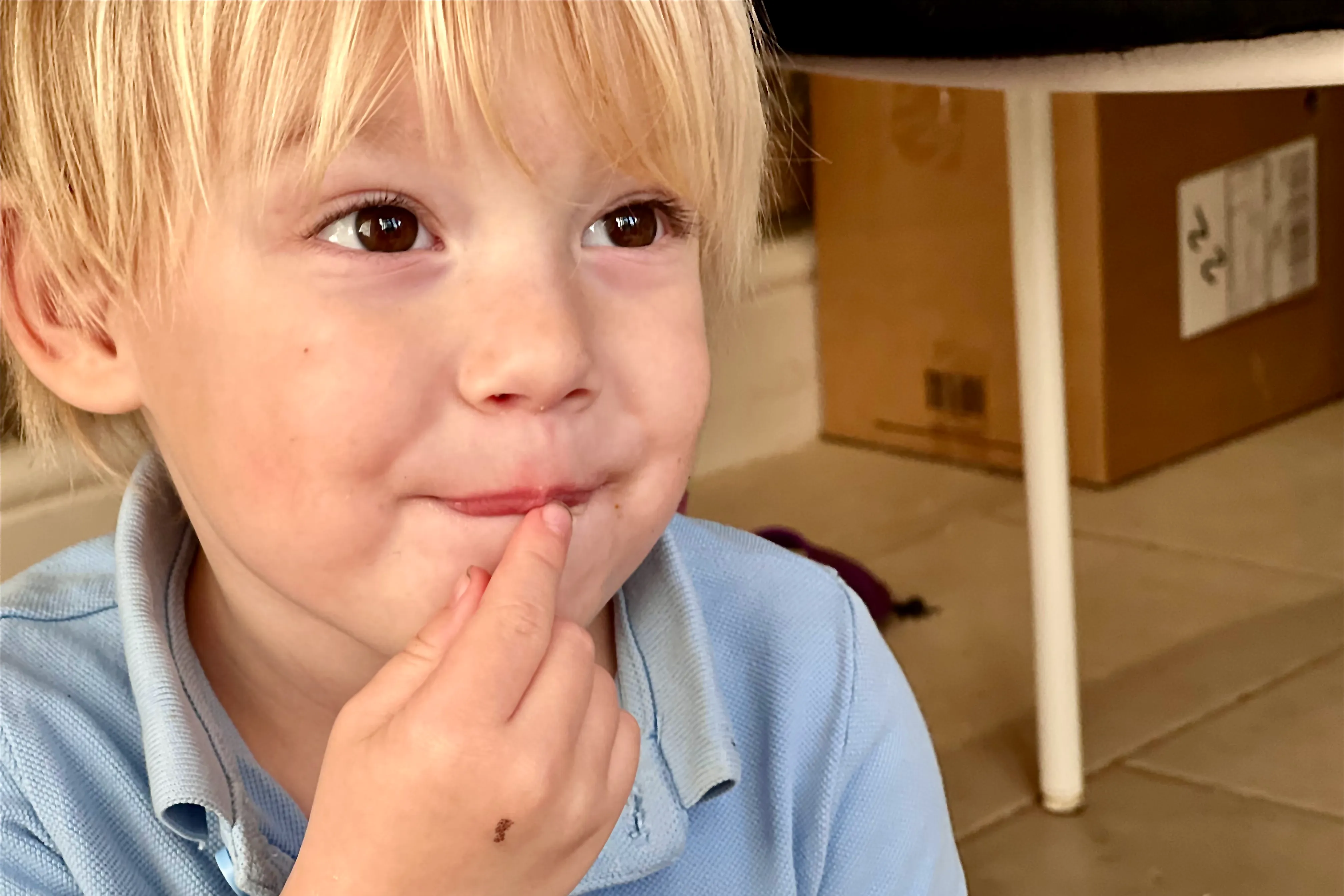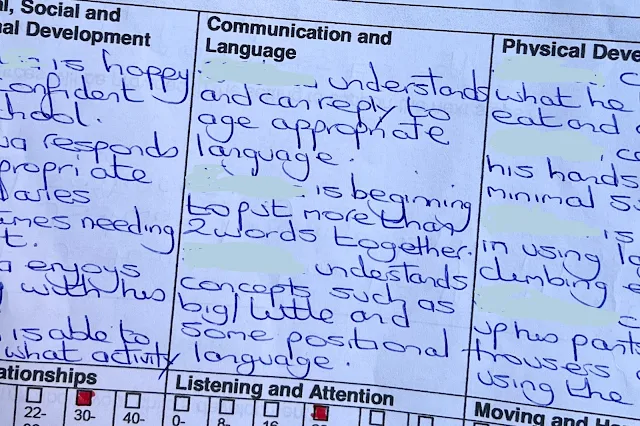Last year I wrote about finding out my son was biting children at nursery and I’m sure that a big part of it was frustration from not being able to communicate. If you are two years old and someone takes the toy you want to play with and you can’t say “give it back!” then what do you do?
Shortly after my son turned two it became obvious he wasn’t able to talk as well as his peers. While he used to talk a lot of nonsense and was pretty good at making himself understood he didn’t use many recognisable words. It left me wondering: “Does my child have a speech delay?”
Comparing My Son’s Speech Development To Others
When I chatted with other parents the concern was brushed off with comments like “they all develop at different times”, “boys often talk later” and “younger siblings don’t need to talk because everyone else talks for them”.
My daughters started talking at different ages with my eldest’s language exploding on pretty much her 2nd birthday. Having not said much before she was able to not only talk, but string words together. My middle child’s speech developed gradually from when she turned one so I understood children developed differently.
In some ways I wasn’t worried because he was communicating well, just not with many words and he clearly understood most of what was said to him. But then there was a part of me worrying that maybe it was a problem and the sooner he got help the better. This wasn’t helped by an American I am friends with on Facebook talking about her child’s speech delay and the therapy she was attending. This child was one when she started therapy which is a contrast to the UK when NHS Speech and Language teams are unlikely to assess for speech delay before 2 1/2.
One of the children my son liked to play with at nursery was 3 and he didn’t say much either. I knew he had been diagnosed with a speech delay and I spoke to his mum about my son’s language development. She described the challenges she had getting support for her son, including an initial dismissal by Health Visitors and the Speech & Language team because children in the pandemic have been less exposed to talking so are often talking later.
Speaking to another parent who had been through similar concerns gave me reassurance because despite being behind his peers my son’s language was ahead of where her son’s had been at a similar age. She said that if I felt that my son needed help then I should push for it though. I very much believe in that “mum sense” where you know when there is a problem.
The Turning Point In My Son’s Speech Development
I still wasn’t very worried, but I decided that I would ask for a referral for my son after the May half term. Funnily enough his language started to improve over that week off nursery with a number of new words appearing and him starting to combine 2 or 3 words together.
Because of the noticeable improvement I decided not to refer him to Speech and Language Therapy. I didn’t feel the exercises they would give us would benefit us hugely at that point and I knew the service was already under pressure, but if I feel his language development slows I will get in touch with them (I’ve found out our local team have a virtual drop in session so I can get in touch if I am concerned).
One of the things people regularly told me was that it will “click” and my son's language will suddenly improve (much like my eldest daughter’s had). That hasn’t happened. There has however been a slow and gradual improvement. Month on month I can see an increase in words and complexity of sentences, the improvement since that May half term has been gradual, but constant.
I think his language now he is 3 might still be a little behind his peers, especially his pronunciation, but he has a huge vocabulary and is talking long sentences.
There are times I can’t understand what he is talking about (especially when he decides to tell a long story), times that only I can understand what he is saying and times he speaks incredibly clearly, like a few weeks ago when he walked out of nursery loudly repeating “I did a poo in my pants”. Excellent.
When To Be Concerned About A Speech Delay
The main reason I wasn’t ever very concerned about my son’s speech was because he communicated with us and he was verbal, even if the sounds he made weren’t always recognisable words. If one year olds show no interest in communicating either through actions, repeated sounds or recognisable words then I would recommend speaking to a professional.
The threshold when medical professionals get concerned about speech is surprisingly high as this fact sheet shows. Children can be well behind their peers and still not be referred for help. According to the 3 year Health Check form (ASQ 3) at their 3rd birthday they are expected to make sentences of 3 or 4 words.
In the UK it feels like we have a relaxed approach to language support due in part to funding (which is why in America it is normal to have privately paid for support at a younger age ). It’s definitely true that many children will develop without help, but the concern is that if a speech delay isn’t diagnosed until they are 3 that doesn’t give a lot of time to help improve their communication before they start school. This can have an impact on other areas of learning and forming relationships. If you are concerned that your child needs more help or you want guidance on how you can help them speak to your Health Visitor or check to see what services your local area has for speech and language.
The West Essex Children’s Speech and Language Therapy Service covers where I live and Epping Forest, Harlow and Uttlesford. As well as providing a number you can call for advice if you live in the area they have quite a few useful fact sheets on the expected level of children at various ages and simple exercises for improving speech which are useful wherever you live.




.jpg)

.jpg)

.jpg)
.jpg)










No comments
Thanks for your comment (unless it's spam in which case, why?)